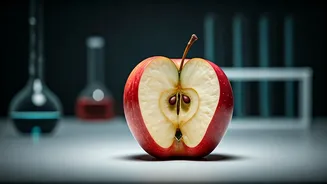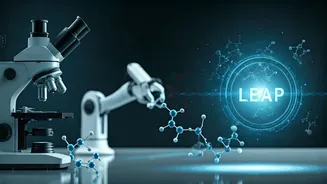IITs: Premier Engineering Hubs
IITs represent the pinnacle of engineering education in India, renowned for their rigorous academic programs and contributions to research and innovation.
These institutes consistently rank high in both national and international rankings, attracting the brightest minds from across the country. IITs are not just about academics; they foster a vibrant campus life, encouraging students to participate in extracurricular activities, clubs, and societies. IITs emphasize practical learning and real-world applications, with collaborations with industry partners, ensuring students are well-prepared for their careers. The reputation of IITs extends globally, with graduates finding employment in leading companies worldwide. Furthermore, IITs often provide extensive support systems for students, including career counseling, mentoring programs, and financial aid, to enhance their overall educational experience. The focus is not solely on technical skills; students are encouraged to develop leadership qualities, communication skills, and a broad understanding of various disciplines, contributing to their holistic development.
Top IITs: Key Highlights
Several IITs have consistently performed well in various ranking systems, reflecting their excellence in education, research, and placement. Some of the top IITs include IIT Bombay, known for its strong engineering programs, infrastructure, and industry connections. IIT Delhi is another leading institute, excelling in research and innovation, and it also has strong placement records. IIT Madras, renowned for its diverse range of programs and research output, offers a comprehensive educational experience. Furthermore, IIT Kanpur, a pioneer in engineering education, boasts strong faculty and cutting-edge research facilities. IIT Kharagpur, the oldest IIT, offers a wide range of disciplines and a sprawling campus, creating a conducive environment for academic pursuits. Each IIT has its unique strengths, from specialized research centers to industry collaborations, providing students with diverse opportunities. These IITs not only impart technical knowledge but also nurture leadership qualities, critical thinking skills, and a global perspective among their students, preparing them for successful careers and contributions to society.
Courses: Diverse Specializations
IITs offer a wide array of courses across various engineering disciplines, ensuring students can find programs aligned with their interests and career goals. Bachelor of Technology (B.Tech) programs in fields such as Computer Science, Electrical Engineering, Mechanical Engineering, Civil Engineering, and Chemical Engineering are very popular. Specialized programs like Aerospace Engineering, Biotechnology, and Naval Architecture cater to specific interests. Moreover, IITs also provide integrated programs, allowing students to pursue both undergraduate and postgraduate degrees simultaneously. Apart from engineering, many IITs offer programs in science, humanities, and management, providing a holistic educational experience. Students can also specialize in emerging fields such as Artificial Intelligence, Data Science, and Robotics. The curriculum emphasizes a blend of theoretical knowledge and practical applications, with extensive laboratory sessions, projects, and industry internships. Furthermore, IITs constantly update their curricula to reflect the latest advancements in technology and industry trends, ensuring students are well-equipped with relevant skills and knowledge.
Admission: Tests and Criteria
Admission to IITs is highly competitive and primarily based on performance in the Joint Entrance Examination (JEE). There are two stages: JEE Main and JEE Advanced. JEE Main serves as a qualifying exam for JEE Advanced. Only candidates who qualify for JEE Main are eligible to appear for JEE Advanced. The JEE Advanced is considered the primary determinant for admission to IITs. The exam assesses candidates' proficiency in physics, chemistry, and mathematics. The eligibility criteria typically require candidates to have passed their 12th standard examination with specific subjects. Furthermore, candidates must meet the age criteria and other specific conditions outlined by the IITs. The admission process also considers factors like category (e.g., general, OBC, SC, ST) and the availability of seats. Besides JEE, some IITs also accept scores from other national or international entrance exams for specific programs. The admission process is carefully designed to identify students with the aptitude, skills, and potential to succeed in the rigorous academic environment of the IITs.
Fees & Financial Aid
The fee structure for IITs varies depending on the program, institute, and category of the student. Generally, fees include tuition fees, hostel charges, and other miscellaneous expenses. However, IITs offer various financial aid options to support deserving students. Scholarships are available based on merit, financial need, or category. These scholarships can cover tuition fees, hostel fees, and sometimes provide a monthly stipend. Many IITs have dedicated departments that assist students in finding and applying for scholarships. Additionally, educational loans are available from banks and financial institutions to help students finance their studies. IITs also provide fee waivers or reductions for students from economically weaker sections. The goal is to ensure that financial constraints do not become barriers to accessing quality education. The financial aid programs are designed to promote inclusivity and provide equal opportunities for all students, regardless of their economic backgrounds.











